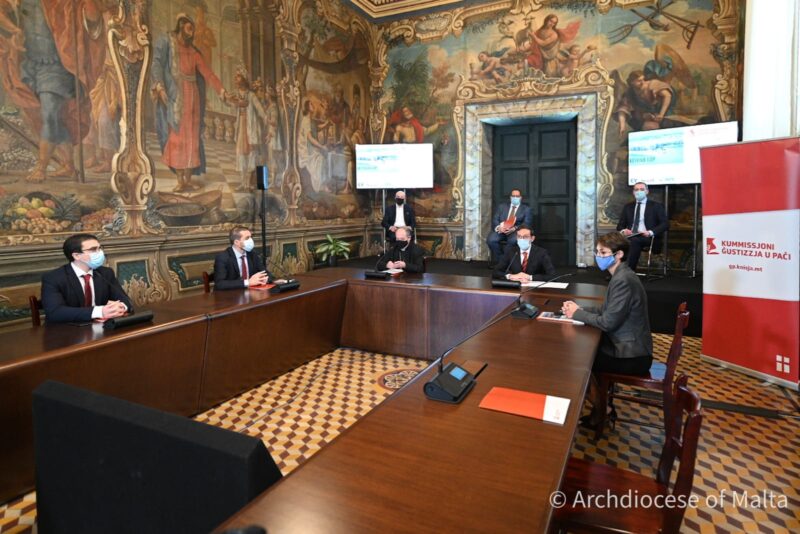The Justice and Peace Commission has repeatedly promoted the need for our country to reassess its economic model towards a more holistic measurement of economic growth that does not depend solely on Gross Domestic Product. This will in turn guarantee the adequate consideration and full respect towards the environment and quality of life of all citizens.
Inspired by the international event “The Economy of Francesco” which is currently being held in Assisi, the Justice and Peace Commission has launched the initiative, Beyond GDP, in collaboration with the local branches of the Focolare Movement and the Centesimus Annus Pro Pontifice Foundation, together with EY and Seed Consultancy, and the support of APS Bank.
During a press conference held at the Archbishop’s Curia, a report highlighting several recommendations was presented. This report is to serve as a catalyst for discussion, and calls for action and cooperation amongst various entities to work together towards the common good of society. This is to be considered a living document, and also acts as a motivation to stimulate further research in the field of socio-economic development.
The OECD Better Life Index, which is used as an index to measure quality of life, was chosen as the foundation of this report. Six dimensions were identified from this index which best reflect the local context: income, housing, education and skills, jobs, health and lifestyle, and environmental quality.
The report is not intended to seek solutions for each specific dimension, but provides recommendations on a holistic level:
- The development of an open data platform or dashboard
- An agreement on a national well-being framework
- The integration of well-being in policy making
- The revisiting of the COLA mechanism
- Commencement of discussions on a social pact
During the presentation of this initiative, Auxiliary Bishop Joseph Galea-Curmi expressed his satisfaction that the Church in Malta has taken this initiative to bring Church entities closer to other entities in the business sphere. He explained that the Church values the person as a whole, and always promotes the holistic development of each person and of society. He reiterated that the Church gives particular attention to the weak and that a society’s strength is gauged by the progress of its weakest members.
Bishop Galea-Curmi said that this initiative is in accordance with Pope Francis who is currently gathering online from Assisi, young economists, entrepreneurs, researchers and activists, to once again re-think creative ways of reviving the economy. Bishop Galea-Curmi expressed his hope that the Beyond GDP report will be the beginning of a process of thought and action, for all to work together for tangible change in the economic model, for the good of humanity and of Maltese society.
Daniel Darmanin, President of the Justice and Peace Commission, said that the Church has always emphasised the moral element of the economy and its effects on society. “When global wealth is not being spread equitably, the gap between rich and poor is widening, and the environment is being sacrificed for financial growth, we need to stop and think about the effect this is having on our lives”. He explained that this is precisely why the Church in Malta is calling for a more balanced and human-centered economy.
The ultimate goal of the initiative Beyond GDP is that tomorrow’s economy establishes a holistic vision which is essential towards the betterment of the overall well-being of society, which ensures justice for the poor and seeks sustainable solutions to economic matters which affect our everyday lives.
The report Beyond GDP – A framework to gauge Malta’s success through quality of life will be discussed further during the online APS Talk on the 26th November which is open to the general public.
Click here to read the full report.



